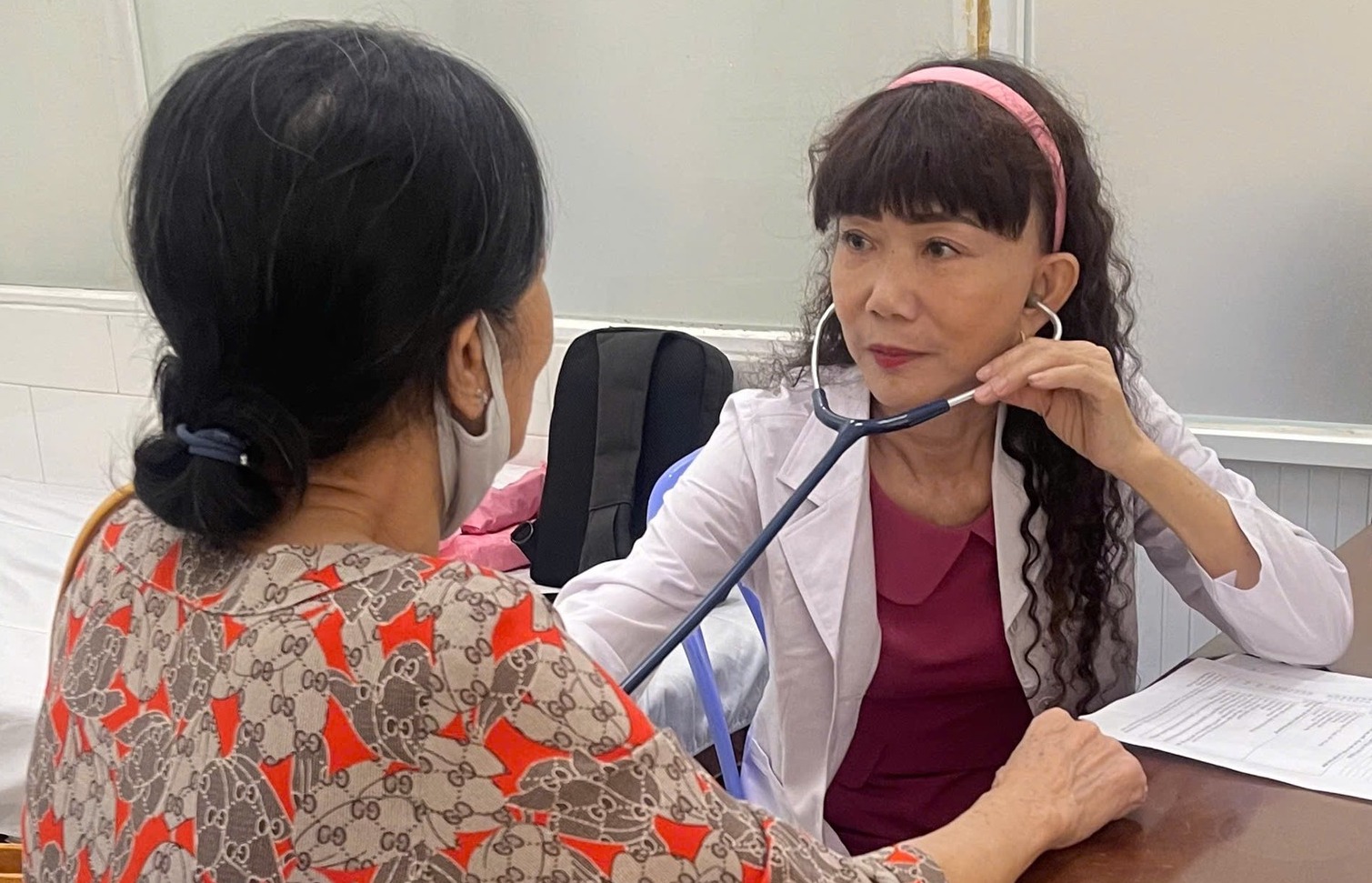During a pilot free health checkup program in Linh Xuan ward in late 2023, 67-year-old Hoa was surprised to be diagnosed with hypertension, a condition she was previously unaware of. She had moved from her hometown and had been temporarily residing in the city for over six months, without registering for permanent residency. Yet, she still received an invitation for the checkup from the local residential group. "I had never had a general checkup before due to financial difficulties, so I was very happy to receive a free examination, including blood tests, ultrasound, and X-rays," she recalled.
After receiving advice from the doctor and having an electronic health record created for monitoring, Hoa began taking medication regularly and exercising every morning. As a result, during her recent follow-up checkup, her blood pressure was more stable, providing her with peace of mind in her daily life and reducing her worries about age-related illnesses.
This is part of the outcome of the free periodic health checkup program that Ho Chi Minh City piloted in 2023 and officially expanded citywide in 2024, with a budget of about 150 billion VND annually, serving nearly one million senior citizens. After two years, the city has created health records for over 526,000 people aged 60 and above, detecting over 49,000 cases of hypertension (15%) and nearly 26,400 suspected cases of diabetes (8%).
While many localities only organize periodic checkups or focus on certain specialties, Ho Chi Minh City has made this a regular policy, linked to electronic health records and long-term treatment management at the grassroots healthcare level.
Previously, Hanoi aimed to provide free health checkups for all residents at least once a year, starting in 2021, with a pilot program in Me Linh district in 5/2023. However, due to various reasons, the citywide plan has not yet been widely implemented. In other provinces and cities, free health checkups are still conducted, but they are often campaign-based, focusing on specific groups with support from organizations and units.
In late August, the Ho Chi Minh City People's Committee announced plans to expand the program to all individuals aged 60 and above, regardless of permanent or temporary residence, including newly merged areas from Binh Duong and Ba Ria - Vung Tau. The specific implementation budget has not yet been estimated.
At the national level, Resolution 72, issued on 9/9, sets a goal from 2026 to implement free annual health checkups or screenings for all citizens, along with electronic health records for lifelong management. By 2030, Vietnam's healthcare system aims to waive part of the basic hospital fees within the health insurance coverage, increasing the average life expectancy to 75.5 years, with at least 68 years of healthy living.
 |
Free health checkups for the elderly in Ho Chi Minh City. Photo: District 7 Medical Center |
Free health checkups for the elderly in Ho Chi Minh City. Photo: District 7 Medical Center
On 15/9, Nguyen Van Vinh Chau, Deputy Director of the Ho Chi Minh City Department of Health, stated that according to the plan the Department issued last week, every person aged 60 and above, regardless of permanent or temporary residence, will be invited for a checkup at least once a year. The checkup will include clinical examinations, basic tests, and screenings for hypertension, diabetes, cardiovascular diseases, cancer, COPD, and dementia. Results will be provided within 24-48 hours, along with treatment advice or referral if needed. All data will be updated on the community health management system, ensuring continuous monitoring and early intervention to limit complications and reduce costs.
Ho Chi Minh City estimates it will detect approximately 160,000 cases of hypertension and 91,000 suspected cases of diabetes – equivalent to 15% and 8% of the elderly population, respectively. Over 95% of detected cases will be enrolled in management, monitoring, and treatment programs at healthcare facilities. All participating healthcare workers will be trained on professional procedures, and 100% of examination and screening data will be fully and promptly entered into the city's community health management system.
"This is a step by Ho Chi Minh City to achieve the national goal of at least 80% of the elderly receiving annual health checkups," Dr. Chau said.
Localities will compile lists, send invitations to homes, and collaborate with families, associations, and volunteers to encourage participation in the checkups. The frail and those with mobility difficulties will receive home visits. Eligible public and private hospitals and clinics will be mobilized to participate. The program will be funded by the city budget and other legal sources.
Le Phuong












